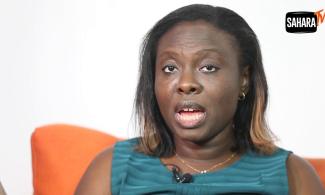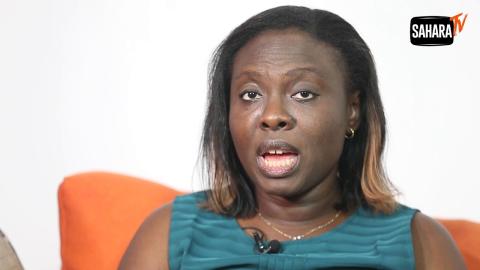
With the backdrop of the fight against insurgency and insecurity in Nigeria, security agents have used the law, particularly the Cyber Crimes (Prohibition and Prevention) Act and the Terrorism Prevention Act (as amended) to target journalists, bloggers and other media practitioners.

On 28 February 2018, officials of Nigeria’s Department of State Services (DSS) arrested and detained for seven days, Tony Ezimakor, the Abuja Bureau Chief of Daily Independent Newspaper for publishing a story on Boko Haram and alleged ransom payments for abductees. He had been interrogated about his sources which he declined to disclose. Similarly, Samuel Ogundipe, a journalist with Premium times was arrested by the Special Anti-Robbery squad (SARS) on 14 August for a story on the National Assembly invasion investigation which led to the dismissal of the former Director-General of the DSS. He refused to disclose sources of his story and was subsequently charged to court for criminal trespass and theft of police document. However, he was released on bail on 17 August.
With the backdrop of the fight against insurgency and insecurity in Nigeria, security agents have used the law, particularly the Cyber Crimes (Prohibition and Prevention) Act and the Terrorism Prevention Act (as amended) to target journalists, bloggers and other media practitioners. In January 1, 2018, Daniel Elombah, journalist and publisher of an online media site ‘elombah.com’ and his brother Izuchukwu Elombah were arrested by Special Anti-Robbery squad (SARS) and detained for two days. Another brother Timothy Elombah who was also arrested was detained for 25 days. These arrests were linked to a story allegedly written by Timothy criticising the IGP which he denied. They were charged with cyberstalking, cyberbullying and terrorism.
An investigative journalist, Ahmed Salkida, well-known for his reports on the insurgency in the north-east of Nigeria and Boko Haram, has been accused of links with the insurgent group and potential violations of the Terrorism Act. On 14 August 2016, he was declared wanted by the authorities after publishing stories on the Chibok girls and releasing a video on his website ‘salkida.com’. He spent several months clearing his name and despite not being found guilty of any wrongdoing continues to suffer loss of work, stress and restriction due to his ground-breaking reporting and access to rare sources in Boko Haram. In June 2018, Salkida’s twitter account was locked down for five days and he could not access it during that period in a suspected attack to compromise his account.
Abiri Jones, the publisher of the Weekly Source, based in Yenegoa, Bayelsa State was released on bail on 15 August 2018, after being detained incommunicado and without trial for over two years on allegations of terrorism related crimes. He was arrested by the DSS on 21 July 2016 after a raid on his office. Fortunately, on 17 September 2018, all charges against him were dismissed and has won a 10.5 million naira award for his illegal detention.
Freedom of expression is a fundamental human right guaranteed in the Nigerian Constitution, African Charter on Human and Peoples Rights, the Universal Declaration of Human Rights and other relevant international treaties. Yet, these stories and more show a worrying pattern of threats, arrests, harassment and intimidation faced by journalists doing their work. Because ofthese attacks some media practitioners are no longer able to carry on. A radio programme, hosted by Gloria Mabeiam, House of Justice on Liberty Radio 91.7 fm, Kaduna state ended its programming in March 2018 after six years of airing abuses suffered by victims of human rights, when the radio station faced threats too. To deprive journalists of facilities, their places of work have also been targeted. Breeze FM 99.5, Nasarawa and Fresh FM 105.9, Ibadan, Oyo had their premises demolished in 2017 and 2018 respectively.
Overall, such practices prevent the press from sharing information thereby depriving the public from being informed and empowered. According to Mandela, "a critical, independent and investigative press is the lifeblood of any democracy. The press must be free from state interference. It must have the economic strength to stand up to the blandishments of government officials. It must have sufficient independence from vested interests to be bold and inquiring without fear or favour. It must enjoy the protection of the constitution, so that it can protect our rights as citizens."
Journalists must also form a solidarity of raising their own issues as can be seen in the case of Tony Ezimakor where the Press raised the issue and others supported. It is also important that every person speaks up to demand for and join campaigns for a free press especially when media practitioners and media houses are attacked. Freedom of expression in Nigeria can be secured if the authorities stop the crack down on journalists, prevent further attacks and hold those abusing their power accountable when journalists are unduly targeted.
Osai Ojigho, is Director, Amnesty International Nigeria.